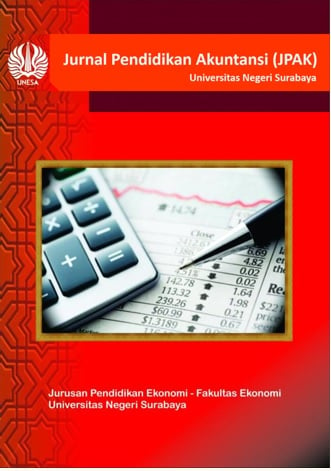Mental Accounting dengan Memaknai Kondisi Keuangan Mahasiswa Pasca Pandemi Covid-19
DOI:
https://doi.org/10.26740/jpak.v11n1.p29-38Keywords:
Mental accounting; students; financial conditionAbstract
The outbreak of the Covid-19 pandemic has had a negative impact on the economic development of society. This has also affected the financial condition of all sectors of the population. Students are one of those who can be categorized as consumers, who tend to spend money excessively and need to adjust their lifestyle in managing their finances. This study aims to investigate how students can understand their financial condition before and after the Covid-19 pandemic through a mental accounting-based thinking. Using a descriptive qualitative method, this research analyzes based on a phenomenological study of students and experiences the change in financial condition after the pandemic that has occurred in Pontianak. The information collection in this research uses interview sessions and observes the informants' life aspects through social media. Through the survey conducted, the results of the research show that the phenomenon before and after Covid-19 related to students treating their financial condition and decision-making from the income received. Students experience the beneficial influence in their financial allocation thoughts by applying mental accounting. By implementing mental accounting, students can have better thoughts about how to manage their finances after the Covid-19 pandemic.
Downloads
Downloads
Published
How to Cite
Issue
Section
License
Authors who publish with this journal agree to the following terms:
- Authors retain copyright and grant the journal right of first publication with the work simultaneously licensed under a Creative Commons Attribution License that allows others to share the work with an acknowledgement of the work's authorship and initial publication in this journal.
- Authors are able to enter into separate, additional contractual arrangements for the non-exclusive distribution of the journal's published version of the work (e.g., post it to an institutional repository or publish it in a book), with an acknowledgement of its initial publication in this journal.
- Authors are permitted and encouraged to post their work online (e.g., in institutional repositories or on their website) prior to and during the submission process, as it can lead to productive exchanges, as well as earlier and greater citation of published work (See The Effect of Open Access).

Jurnal Pendidikan Akuntansi (JPAK) is licensed under a Creative Commons Attribution-NonCommercial 4.0 International License.
 Abstract views: 971
,
Abstract views: 971
, PDF Downloads: 1127
PDF Downloads: 1127



